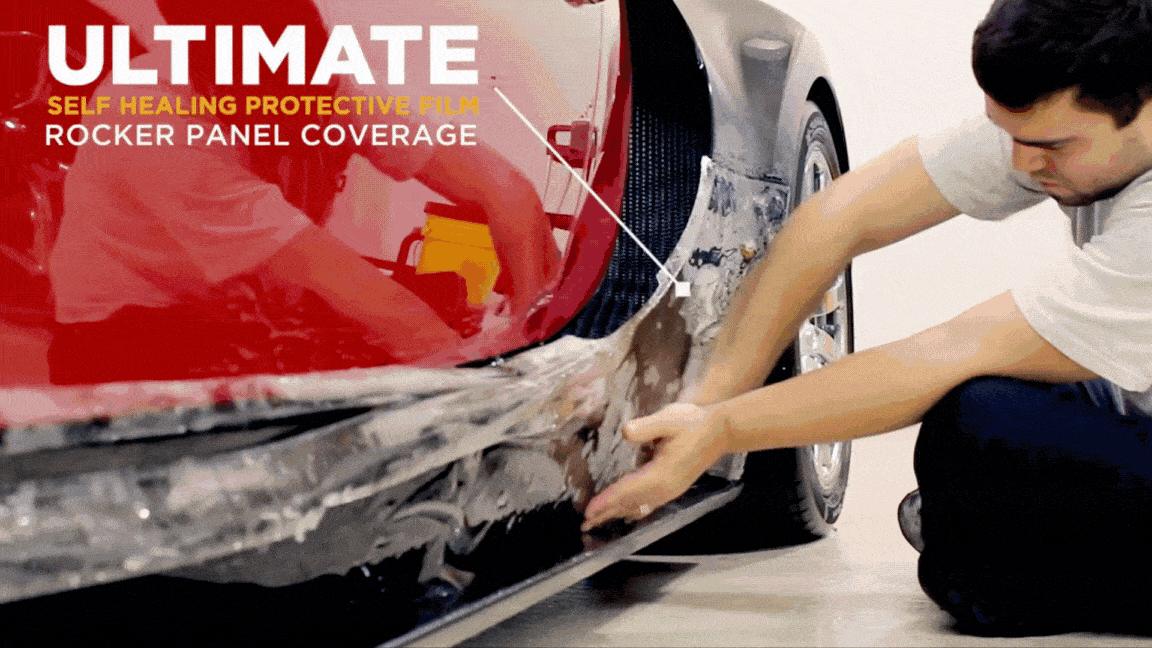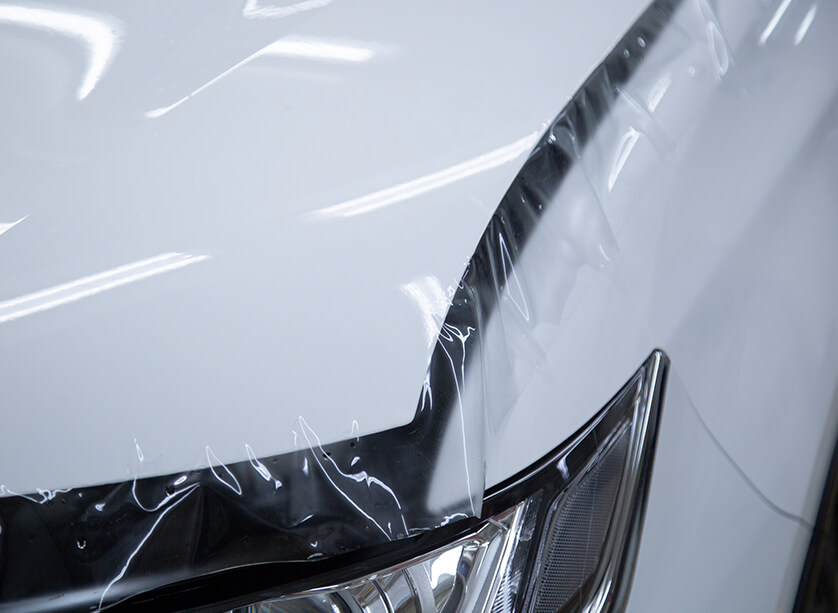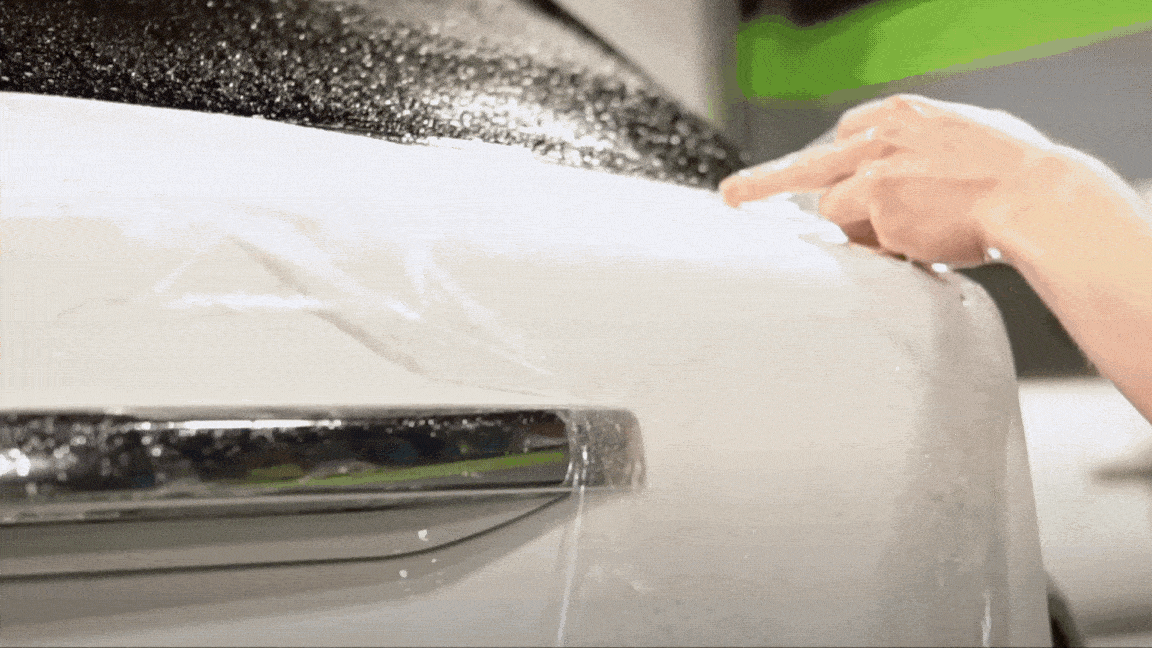
 for Winter Road Conditions in Wisconsin?
for Winter Road Conditions in Wisconsin?Winter in Wisconsin is no joke. As temperatures drop, the roads become a treacherous mix of snow, ice, and road salt, with gravel often scattered to enhance traction. These conditions are tough on vehicles, causing everything from minor scratches to significant paint damage. Protecting your car during these harsh months is crucial to maintaining its appearance and value. This is where paint protection film (PPF)steps in, offering a robust defense against the wear and tear that winter inevitably brings.
Paint protection film (PPF) is a transparent, thin layer of polyurethane or polymer that is applied to a vehicle's exterior surfaces. Its primary function is to protect the paint from damage caused by various environmental factors, including those that are particularly harsh during winter. The film acts as a barrier, absorbing the impact of road debris, chemicals, and abrasions, keeping the underlying paint pristine.
PPF is known for its durability and resilience, especially under extreme conditions like those experienced in Wisconsin winters. Once applied, it can last for several years, maintaining its protective qualities despite the relentless assault of winter road hazards.
Road salt is a necessary evil in Wisconsin, helping to melt ice and prevent accidents. However, it’s highly corrosive and can lead to serious damage if left unchecked. Salt not only eats away at the metal parts of your car but also accelerates the breakdown of the paint, leading to unsightly patches and potential rust formation.
Ice and snow might look picturesque, but they pose a significant threat to your vehicle’s exterior. The simple act of scraping ice off your car or clearing snow can cause scratches and abrasions, especially if you’re not using the right tools. Over time, these minor damages can accumulate, dulling the paint and reducing your car's aesthetic appeal.
During winter, gravel is often spread on icy roads to provide extra traction. While this helps keep the roads safer, it also increases the risk of your vehicle getting pelted with small stones and debris. These impacts can chip away at your car’s paint, leaving behind small but noticeable marks that are both unsightly and difficult to repair.
 Comparison of PPF with Other Protective Measures (e.g., Waxing, Ceramic Coatings)
Comparison of PPF with Other Protective Measures (e.g., Waxing, Ceramic Coatings)While waxing and ceramic coatings offer some level of protection, they don’t provide the same comprehensive coverage as PPF. Waxing is primarily a short-term solution that needs frequent reapplication, and while ceramic coatings are more durable, they don’t offer the same impact resistance that PPF does. PPF stands out as the most effective solution for winter road protection because of its ability to protect against both chemical and physical damage, making it the superior choice for Wisconsin drivers facing harsh winter conditions.
Wisconsin's unique climate—with its freezing temperatures, heavy snowfall, and frequent use of road salt—makes PPF an invaluable investment for any vehicle owner. The combination of these factors creates a perfect storm for paint damage, particularly during the long winter months. Local roads often remain icy and gravel-strewn well into spring, extending the period during which your car is vulnerable to damage.
Wisconsin’s road maintenance practices, while essential for safety, further highlight the need for PPF. The liberal use of road salt and the scattering of gravel are necessary to keep roads passable, but they also increase the risk of damage to your vehicle.
To ensure that your PPF remains effective throughout the winter season, it’s crucial to follow proper maintenance practices. Here are some do’s and don’ts to keep your PPF in top shape:
 Do’s:
Do’s:
The process of applying paint protection film is precise and requires expert handling to ensure that the film adheres correctly and provides maximum protection. At Carisma Customs, the installation begins with a thorough cleaning of your vehicle to remove any contaminants that could interfere with the application. Next, the film is carefully applied to the car’s surfaces, ensuring a perfect fit that covers all vulnerable areas.
Professional installation is crucial, especially in Wisconsin’s climate, where the film must withstand extreme cold and road conditions. A flawless application ensures that there are no bubbles, creases, or imperfections that could compromise the film’s effectiveness. At Carisma Customs, our team’s expertise guarantees that the PPF is applied with precision, allowing it to perform at its best throughout the tough winter months.
 When considering the application of paint protection film, it's important to weigh the upfront costs against the long-term benefits. The cost of PPF can vary depending on the extent of coverage and the type of film chosen. Typically, full coverage for a vehicle will depend on factors like the size of the vehicle, the complexity of the installation, and the quality of the film.
When considering the application of paint protection film, it's important to weigh the upfront costs against the long-term benefits. The cost of PPF can vary depending on the extent of coverage and the type of film chosen. Typically, full coverage for a vehicle will depend on factors like the size of the vehicle, the complexity of the installation, and the quality of the film.
As someone who understands the relentless nature of Wisconsin winters, I can’t overstate the value of PPF. Knowing that my vehicle is shielded from the season’s worst gives me confidence every time I hit the road. For Wisconsin drivers, PPF isn’t just a luxury; it’s a necessity that pays for itself over time.
Wisconsin winters are tough on vehicles, but paint protection film offers a powerful defense against the season’s most damaging elements. From road salt to gravel, PPF stands up to the challenges, preserving your vehicle’s paint and keeping it looking its best year-round. The investment in PPF is one that pays off in the long run, both in terms of vehicle longevity and potential cost savings.
Don’t wait until winter wreaks havoc on your vehicle’s paint. Contact Carisma Customs today for expert advice and professional PPF installation tailored to withstand Wisconsin’s toughest conditions. Protect your investment and drive with confidence this winter.